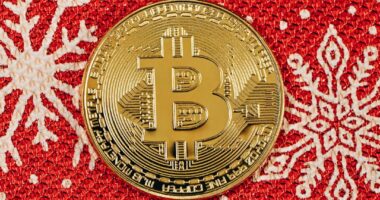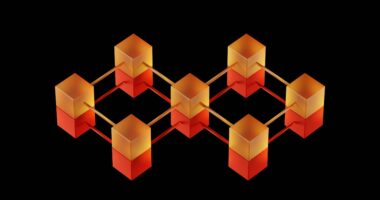Non-fungible tokens (NFTs) are unique digital assets that represent ownership of specific items or content, such as artwork, music, videos, and virtual real estate. Unlike fungible cryptocurrencies, NFTs are not interchangeable and have distinct values based on their uniqueness. This characteristic has led to a growing market for digital collectibles.
NFT marketplaces are online platforms that facilitate the buying, selling, and trading of NFTs. These platforms allow creators to showcase and monetize their digital assets while providing collectors and investors with opportunities to purchase rare and unique items. The rapid growth of the NFT market has resulted in the emergence of numerous marketplaces, each offering different features, fee structures, and user experiences.
As the NFT ecosystem continues to expand, it is crucial for both creators and buyers to be familiar with the leading NFT platforms for buying and selling, as well as the most effective ways to navigate this evolving market.
Key Takeaways
- NFTs are unique digital assets that are bought and sold using blockchain technology, and NFT marketplaces are platforms where users can trade these assets.
- Top NFT sites for buying NFTs include OpenSea, Rarible, and Foundation, offering a wide range of digital art, collectibles, and other unique items.
- Best platforms for selling NFTs include Nifty Gateway, SuperRare, and KnownOrigin, providing artists and creators with opportunities to showcase and sell their digital creations.
- Comparison of fees and features on different NFT sites reveals that each platform has its own fee structure and unique selling points, so it’s important to research and choose the right platform for your needs.
- Tips for navigating NFT marketplaces include doing thorough research, understanding the terms and conditions, and being cautious of scams and fraudulent activities.
- Understanding the risks and benefits of NFT trading is crucial, as it involves high volatility, potential for high returns, and the need for careful consideration of investment decisions.
- In conclusion, the future outlook for NFT marketplaces is promising, with continued growth and innovation in the digital art and collectibles space.
Top NFT Sites for Buying NFTs
OpenSea: The Largest NFT Marketplace
OpenSea is one of the largest and most popular NFT marketplaces, offering a wide range of digital assets including art, domain names, virtual worlds, and more. The platform allows users to buy, sell, and trade NFTs using Ethereum, making it accessible to a wide range of creators and collectors. OpenSea also offers features such as auctions, bundles, and instant sales, providing flexibility for both buyers and sellers.
Rarible: A Decentralized NFT Marketplace
Rarible is a decentralized NFT marketplace that allows creators to mint and sell their own digital assets. This platform is known for its user-friendly interface and low fees, making it an attractive option for independent artists and creators.
Key Features of Rarible
Rarible also offers a governance token (RARI) that allows users to participate in the platform’s decision-making process.
Best Platforms for Selling NFTs

1. Foundation: Foundation is a curated NFT marketplace that focuses on supporting artists and creators. The platform requires creators to apply in order to mint and sell their NFTs, ensuring a high level of quality and originality.
Foundation also offers features such as split royalties, allowing creators to share profits with collaborators or contributors. 2. SuperRare: SuperRare is a premium NFT marketplace that specializes in digital art.
The platform is known for its high-quality curation and selective approach to onboarding artists. SuperRare also offers features such as unlockable content and social features, creating a unique and interactive experience for collectors.
Comparison of Fees and Features on Different NFT Sites
When comparing fees and features on different NFT sites, it’s important to consider factors such as minting costs, transaction fees, royalties, and user experience. OpenSea and Rarible are known for their low fees and accessibility, making them popular choices for independent creators and collectors. On the other hand, platforms like Foundation and SuperRare offer curated experiences with higher quality standards and additional features such as split royalties and unlockable content.
In terms of user experience, OpenSea stands out for its wide range of digital assets and flexible buying options, while Rarible is praised for its user-friendly interface and decentralized approach. Foundation and SuperRare offer curated experiences with a focus on supporting artists and providing a premium platform for collectors. Ultimately, the best platform for buying or selling NFTs will depend on individual preferences, goals, and the specific type of digital assets being traded.
Tips for Navigating NFT Marketplaces
Navigating NFT marketplaces can be an exciting but daunting experience, especially for newcomers to the world of digital collectibles. Here are some tips for navigating NFT marketplaces: 1. Do Your Research: Before buying or selling NFTs, take the time to research different platforms, fees, features, and user experiences.
Understanding the landscape of NFT marketplaces will help you make informed decisions and find the best fit for your needs. 2. Understand the Technology: NFTs are built on blockchain technology, which can be complex and unfamiliar to many users.
Take the time to understand how NFTs are created, stored, and traded on the blockchain in order to navigate marketplaces with confidence. 3. Connect with the Community: Joining online communities and forums dedicated to NFTs can provide valuable insights, tips, and support from experienced creators and collectors.
Engaging with the community can also help you stay informed about new trends and developments in the NFT market.
Understanding the Risks and Benefits of NFT Trading

Monetizing Digital Assets
NFT trading offers creators the opportunity to monetize their digital assets in new and innovative ways, providing collectors with access to unique and rare items. This new revenue stream can be a game-changer for artists and creators.
Potential for Long-term Income
One of the key benefits of NFT trading is the potential for creators to earn royalties on secondary sales of their digital assets. This means that if an NFT is resold at a higher price in the future, the original creator can receive a percentage of the profits, providing long-term income for artists and creators.
Risks and Challenges
However, the volatile nature of the NFT market means that prices can fluctuate dramatically, leading to potential financial risks for both creators and buyers. The speculative nature of the market means that prices can be unpredictable, leading to potential financial losses for buyers who purchase NFTs at inflated prices. Additionally, the lack of regulation in the NFT space means that there is a higher risk of fraud or scams, making it important for users to exercise caution when buying or selling digital assets.
Conclusion and Future Outlook for NFT Marketplaces
In conclusion, NFTs have opened up new opportunities for creators to monetize their digital assets and for collectors to access unique and rare items in the digital space. As the NFT market continues to evolve, it’s important for users to stay informed about the top NFT sites for buying and selling, as well as the best platforms for navigating this exciting new market. Looking ahead, the future outlook for NFT marketplaces is promising, with continued growth and innovation expected in the coming years.
As more creators and collectors enter the space, we can expect to see new features, improved user experiences, and a wider range of digital assets available on NFT marketplaces. However, it’s important for users to approach NFT trading with caution and to stay informed about the risks and benefits associated with this emerging market. Overall, NFTs have the potential to revolutionize the way we buy, sell, and trade digital assets, creating new opportunities for creators and collectors in the digital age.
By understanding the landscape of NFT marketplaces and staying informed about best practices for navigating this space, users can make informed decisions and participate in this exciting new market with confidence.
If you’re interested in learning more about the world of NFTs and how they are revolutionizing the art and collectibles market, check out this article on eth-news.com. This article provides a comprehensive overview of NFTs and their potential impact on various industries. It’s a great resource for anyone looking to dive deeper into the world of non-fungible tokens.
FAQs
What are NFTs?
NFTs, or non-fungible tokens, are digital assets that represent ownership or proof of authenticity of a unique item or piece of content, such as art, music, videos, and more, using blockchain technology.
What are NFT sites?
NFT sites are online platforms where users can buy, sell, and trade NFTs. These sites provide a marketplace for digital artists, creators, and collectors to engage in transactions involving NFTs.
How do NFT sites work?
NFT sites typically operate as online marketplaces where users can create accounts, browse NFT listings, place bids or make purchases, and manage their NFT collections. Transactions are facilitated using cryptocurrency and recorded on a blockchain.
What are the best platforms for buying and selling NFTs?
The best platforms for buying and selling NFTs include popular marketplaces such as OpenSea, Rarible, Foundation, and NBA Top Shot, among others. These platforms offer a wide range of digital assets and provide a user-friendly experience for both creators and collectors.
What should I consider when choosing an NFT site?
When choosing an NFT site, consider factors such as the platform’s user interface, fees and transaction costs, security measures, community and user base, available digital assets, and the platform’s reputation within the NFT space.





